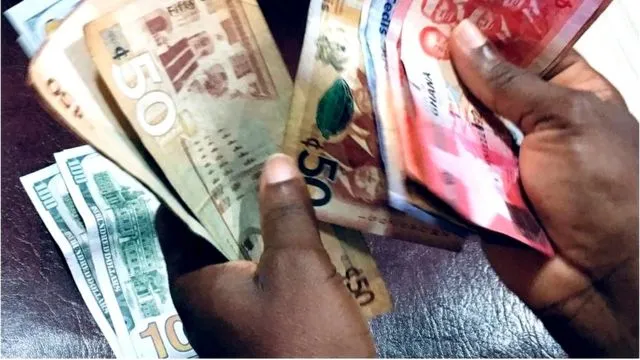adverts
The Ghanaian cedi has crossed the GH¢16 mark against the US dollar in the retail currency market, reflecting the currency’s ongoing struggles.
A survey by Citi Business News at various forex bureaux and banks in Accra revealed that the dollar is being sold at rates between GH¢15.95 and GH¢16.20.
This milestone comes shortly after the International Monetary Fund (IMF) lifted restrictions on dollar auctions by the Bank of Ghana, following an increase in the country’s reserves under a US$3 billion economic recovery program. Despite this support, the cedi’s value continues to decline.
adverts
Data from the Bank of Ghana’s July 2024 Summary of Financial and Economic Data shows that the cedi depreciated by approximately 19.6% against the US dollar on the interbank forex market as of July 2024. The retail market, however, experienced a slightly higher depreciation rate of 21%.
During visits to various forex bureaux in Accra, operators pointed to the economic climate and recent Bank of Ghana regulations, such as the requirement for customers to use Ghana Cards as identification, as reasons for the cedi’s decline.
Bernice Arthur, a forex bureau operator, highlighted the impact on business: “Times are tough. Customers come in asking us to reduce the rates, and while we want to help, lowering the rates too much affects our business. We negotiate, but sometimes customers walk away. Other times, we have to compromise to stay in business.”
Edward Lawson, another forex operator, linked the slowdown in business to customers hoarding dollars in hopes of future gains. “Business is slow because some people are waiting for the dollar rate to go up before they exchange, which is not good for the market,” he said.
Economic and Fixed Income Analyst Wilson Zilevu pointed out that market sentiment is heavily influencing the current exchange rates. “The speculative behaviour of foreign exchange dealers is evident. Recently, the central bank offered a seven-day option for forex dealers to lock in their prices, which has added to the speculation,” he explained.
Zilevu called on the Bank of Ghana to provide assurances about the availability of forex to calm the market and curb speculative activities.
The dollar’s depreciation underscores the economic challenges facing Ghana, even as efforts to stabilise the currency and strengthen the economy continue. The situation calls for decisive action from financial authorities to restore confidence and stabilise the exchange rate.


